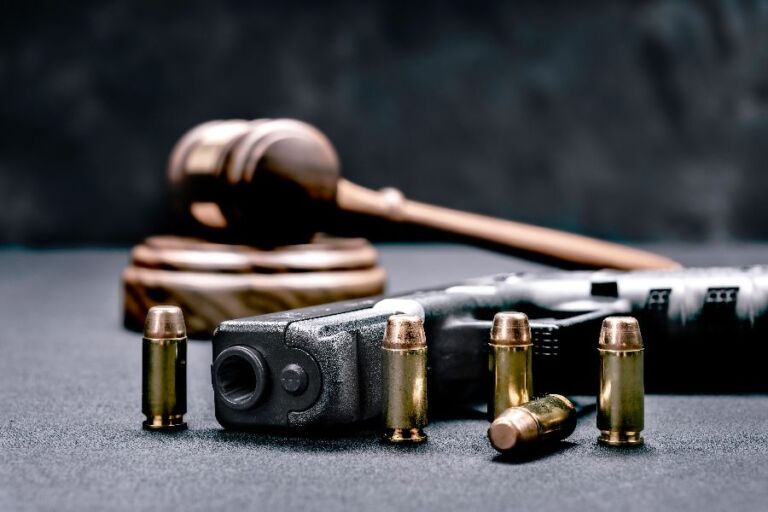Gun Rights Restoration Attorney in Minnesota

Regaining Your Second Amendment Rights in a State That Doesn’t Make It Easy
A past conviction, civil commitment, or even a juvenile adjudication can block your right to own or carry firearms in Minnesota. But in many cases, that loss isn’t permanent. At Rob Doar Law, we help Minnesotans navigate the process of restoring firearm rights after disqualification. Whether your prohibition is based on state or federal law, we evaluate your eligibility, prepare petitions, and advocate in court for your Second Amendment rights to be fully restored.Understanding Firearm Disqualifications in Minnesota
Minnesota law defines theft and property crimes broadly, with penalties based on value, method, and prior offenses:
-
Felony Convictions:
Unless rights are restored, most felony convictions result in a lifetime ban under state or federal law—even if the offense was non-violent. -
Domestic Assault Convictions:
Misdemeanor domestic offenses often trigger federal firearm bans under 18 U.S.C. § 922(g)(9). -
Civil Mental Health Commitments:
A person who has been civilly committed for mental illness is prohibited from possessing firearms until rights are restored by court order. -
Juvenile Adjudications:
Certain juvenile offenses may create a firearm prohibition lasting until age 24—or longer without petitioning the court.
Common restoration scenarios we handle:
- Felony convictions with completed sentence and years of law-abiding behavior
- Old juvenile records used as the basis for carry or purchase denials
- Out-of-state convictions that do not trigger federal disqualification
- Civil commitment cases where the individual has fully recovered and received medical support for restoration
How Firearm Rights Restoration Works in Minnesota:
- Eligibility Review: We analyze your record under Minn. Stat. § 624.713 and 18 U.S.C. § 922(g) to confirm what prohibition applies and whether restoration is possible.
- Restoration Petition: If eligible, we file a petition under Minn. Stat. § 609.165, subd. 1d in district court—demonstrating rehabilitation and why restoration is appropriate.
- Gathering Evidence of Rehabilitation: We work with you to gather support letters, treatment records, discharge documents, and proof of law-abiding conduct to present to the court.
- Court Hearing & Advocacy: We represent you in front of a judge, argue your case, respond to opposition, and advocate for full restoration of your rights.
If you’ve moved on from your past, your rights should too. We’re here to help you make it official.
Navigating the Legal Process
Throughout this process, Rob Doar Law serves as your anchor, providing steadfast support and guidance.
Understanding the path ahead can provide peace of mind. Here’s what you can expect:
-
-
Initial Consultation: Review your disqualifying offense or record, clarify your goals, and assess eligibility under Minnesota and federal law.
-
Case Evaluation: Analyze court records, mental health history, or prior convictions to determine the best legal path forward for restoration.
-
Petition Preparation: Draft and file your formal petition for restoration under Minn. Stat. § 609.165 with supporting documentation and affidavits.
-
Court Hearing: Appear before a judge to present your case, address any objections, and demonstrate rehabilitation and public safety.
-
Final Order: If granted, your rights are restored by court order. We also review federal implications and next steps like permit eligibility.
-
Contact Rob Doar Law Today
Frequently Asked Questions
Yes, in many cases. If your sentence is discharged, and you’ve demonstrated rehabilitation, you may petition the court under Minn. Stat. § 609.165 for restoration of your firearm rights. Some felonies, however, may trigger permanent federal bans.
People with felony convictions, domestic violence convictions, civil commitments, and certain juvenile adjudications are disqualified under Minn. Stat. § 624.713 and/or 18 U.S.C. § 922(g). Each type of disqualification has different rules for restoration.
That’s often a strong argument in your favor. Judges consider time since conviction, behavior, employment, and other factors in deciding whether to restore rights.
Yes. Certain juvenile adjudications are treated similarly to adult convictions for purposes of firearm bans. These can sometimes be used to deny permits until age 24 or beyond—but may be challenged or resolved sooner with legal action.
Restoration is possible after a civil mental health commitment, particularly if your treatment has ended and your providers support your recovery. A court must find that you are no longer a danger to self or others before restoring rights.
No. Expungement and restoration are separate legal processes. Expungement may help with employment or housing, but it does not automatically restore firearm rights. A separate petition under § 609.165 is required.
It depends. Federal law recognizes out-of-state convictions for firearm bans, but state and federal definitions don’t always align. An attorney can review your record and determine whether a ban applies under Minnesota or federal law.
State law prohibits certain individuals under § 624.713. Federal law (18 U.S.C. § 922(g)) is often stricter—especially regarding domestic violence. Even if Minnesota restores your rights, federal bans may still apply in some cases.
It varies by case, but most firearm rights restoration cases take 2–4 months from initial consultation to hearing. A strong petition, clear evidence of rehabilitation, and court preparation can keep the process efficient.